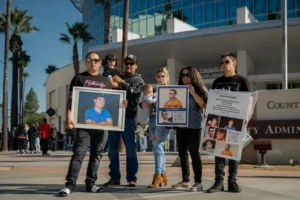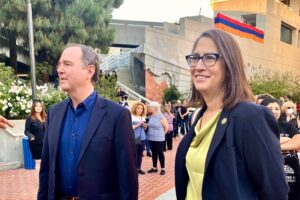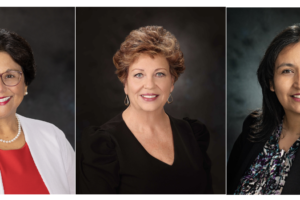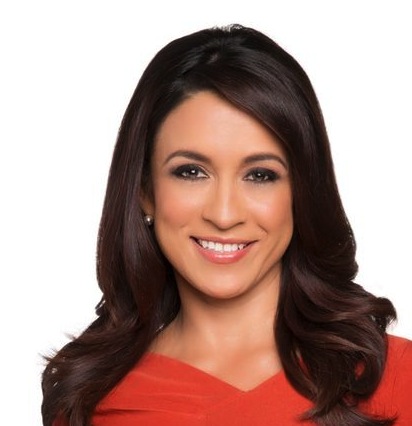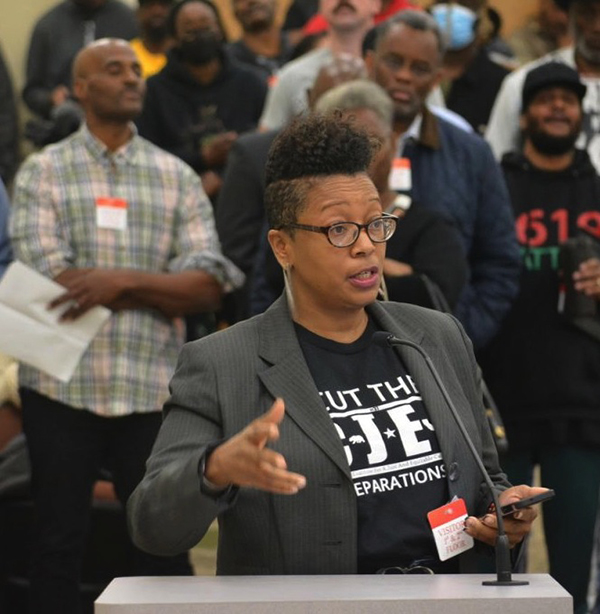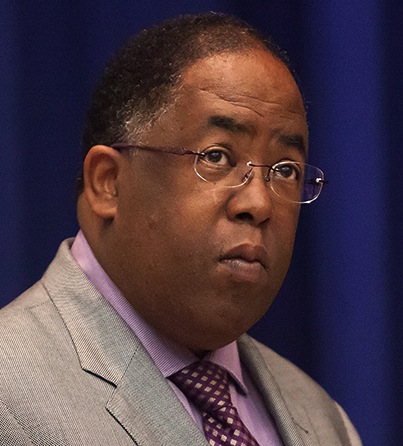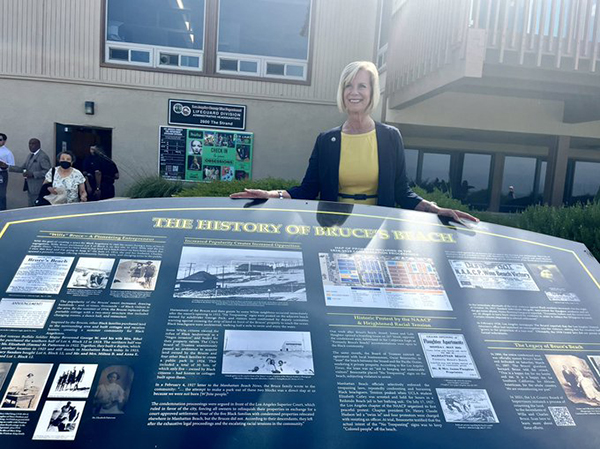By Alysha Conner
Contributing Writer
LOS ANGELES — Charter school leaders are concerned about students’ future livelihoods in the post-pandemic world.
On the one-year anniversary of COVID-19 becoming a national pandemic, a local coalition addressed student issues during a town hall meeting via Zoom on March 11.
The Los Angeles Coalition for Excellent Public Schools is a network of nonprofit organizations that work together to ensure that all L.A. families have access to an equitable education.
Angelica Solis-Montero, executive director of the coalition, began the meeting by first acknowledging the coalition’s prime focus being the needs of students.
“While school leaders are making decisions about returning to campus in the safest and best ways to do so for their students and educators, today we won’t be focusing on returning to campus plans,” Montero said. “Instead, we will be honing in on specific issues that are impacting students and families. Issues that no matter how soon students return to in-person learning will continue to impact them and their families.”
The meeting was designed as a panel discussion to approach and address educational inequities.
Some of the organizations that participated included Campaign for College Opportunity, Ednovate, Macaulay Mental Health and Wellness Center, and Education Trust. Dunia Elvir, a Telemundo news anchor, served as moderator.
KIPP SoCal Public Schools, Green Dot Public Schools, Magnolia Public Schools, Bright Star Schools and the Alliance College-Ready Public Schools also contributed to the conversation.
During the town hall meeting, community leaders banned together to discuss how students throughout L.A. are experiencing educational challenges other than distance learning.
Social-emotional learning, mental health awareness and institutionalized racism have all become vital topics discussed since the coronavirus outbreak.
“The reality of it is that our families and our students are struggling,” said Mac Macaulay, chief of schools for Ednovate Inc. “There is a desperate need to help them navigate how to deal with this situation. There is a social-emotional gap that exists for our families and students.”
“Parents are struggling with just helping their children navigate this world, in addition to trying to meet their basic needs. You can’t do school if you’re worried about how my family is going to pay rent. You can’t do school if you’re worrying about where the food is going to come from.”
Ednovate Inc. is one of the many nonprofits committed to providing resources and assistance to local families amid COVID-19.
The organization has managed to meet families’ basic needs by giving out food donations and small grants.
It also has taught coping skills to parents through workshops and support groups, to help children cope with the pandemic era.
“The pandemic didn’t highlight new problems,” said Brenda Lopez, the student services director for Magnolia Public Schools. “It exposed and exacerbated the problems that were already existing when it came to gaps in resources and access to the means.”
“Having people in positions of change that are ready to advocate for those families and students and provide those resources is critical,” she added. “You can’t have someone unwilling to ask the questions and break down barriers because of politics. It takes the village of all of us doing that work.”
Another pressing matter that panelists discussed was the pandemic’s influence on students’ abilities to prepare for and access higher education.
According to the National Student Clearinghouse Research Center, COVID-19 has caused California’s first-time federal student aid applications to decrease by 21% in 2020.
Fewer completed Free Applications for Federal Student Aid (FASFA) forms could lead to less college attendance.
A new study released by the University of Missouri showed a 5% decline in FASFA applications from Black and Hispanic students.
“A lot of work is being done at our high school campuses to ensure that students continue to stay on the college track, but the data that we’re looking at is not encouraging,” said Audrey Dow, senior vice president of Campaign for College Opportunity.
“The reason why those enrollment numbers are dropping and FASFA applications are down is not a secret. It’s because our families have lost their jobs, and our students are unable to predict what’s coming next.”
Panelists also talked about low enrollments across California State Universities (CSU) and the California Community College system.
According to the National Student Clearinghouse Research Center, enrollment at nine colleges in the Los Angeles Community College District was down by about 10% in fall 2020 compared to 2019.
And EdSource reported 11CSU campuses with notable enrollment drops, like Cal State Sonoma being down 9.7% and Humboldt State down 7.9%.
Nonetheless, the town hall participants highlighted the many student-centered solutions currently being offered to influence positive transitions after high school.
“Our community model provides holistic and inclusive support to students with regards to higher education,” said Genoveva Cortes, Bright Star Schools director of alumni support and college success.
“It’s not always about telling students that they need to get a bachelor’s degree to be successful. But rather pivoting that message to include our career technical education programs or vocational programs.”
Recent policy changes, like waiving admission testing requirements, have caused higher enrolments in the University of California system.
According to preliminary UC data released in January, Black freshman applicants rose by about 48% at UCLA and UC Berkeley, the system’s two most selective campuses.
And Latino applicants increased by 33% at UCLA and 36% at Berkeley.
Howard Fuller, a civil rights activist and education reform advocate, further called on school leaders to promote innovation and break the education system’s barriers.
“What charter schools can do at this moment is pave the way for creating a different educational model,” Fuller said.
“Not an educational model that works best for the adults, but what works best for our children. Every decision we make, we should make because it is in the best interest of our children. It is not about the future.
“People always say we need to fight our children because they’re our future,” Fuller added. “We need to fight for our children because they are our present. We need to talk about what they need today. To ensure that we have schools that understand that when a child walks into our building, they should feel loved, respected and wanted.”
For more information about COVID-relief initiatives, visit, @lacfeps on Facebook.
Alysha Conner is a freelance reporter for Wave Newspapers. She can be reached at aconner@soiwrite.org.




